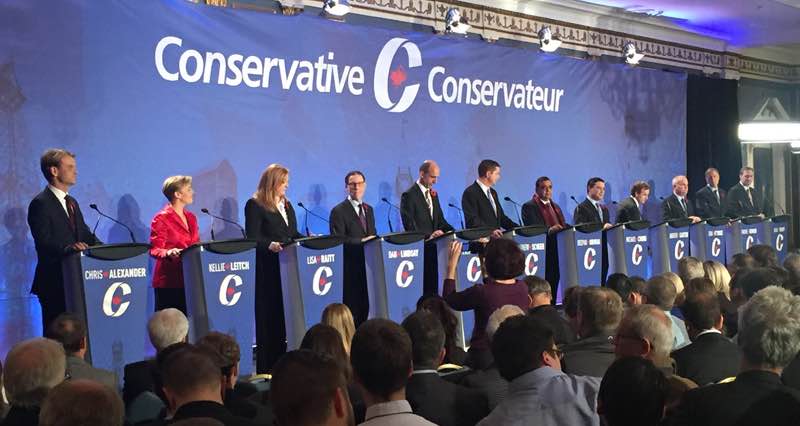Why Won’t Anyone Quit the Conservative Leadership Race? Here’s What We’re Reading
The Daily 5 is Sharp’s essential reading list for what’s happening in the world today. Make sure to follow us on Twitter or subscribe to the Sharp Insider newsletter to stay up to date.
Here’s what we’re reading today.
1. Why won’t anyone quit the Tory leadership race?
“While the race may be suffering from a breadth that undermines its depth, the quirks of the voting mean almost anything is possible at the leadership convention in Toronto at the end of May. No one is dropping out simply because there’s no reason to do so yet, and plenty of reasons to stick around.”
– Macleans
2. RCMP now investigating BC Liberals’ political donations
“British Columbia’s elections agency says it is referring an investigation into political fundraising to the RCMP.
“Elections BC announced it was investigating after the Globe and Mail reported that the BC Liberal Party collected tens of thousands of dollars in multiple donations from lobbyists who paid under their own names with personal credit cards on behalf of clients and companies and were reimbursed. An Elections BC spokesperson said such donations are ‘potentially contraventions of the Elections Act.'”
3. Shell is abandoning Alberta’s oilsands
“Shell says it’s focused on becoming a ‘company of the future,’ and that future apparently doesn’t include the Alberta oilsands.”
4. Yes, there’s a mumps outbreak in Toronto. No, you shouldn’t be worried.
“Despite being on pace for the worst mumps outbreak in Toronto’s recent history, health officials say the public shouldn’t be overly alarmed with the community spread of the highly contagious disease.”
5. Why pop culture’s nostalgia is limited to 30 years
“There’s a reason that the culture of the 1980’s is experiencing a resurgence right now. Just as there’s a reason that we’re in the early days of getting more build-up of 90’s nostalgia. It’s not all that complicated, but it is a pattern that has profound consequences for how art is created, how we conceptualize culture, and perhaps even what sort of political rhetoric comes into vogue.”










